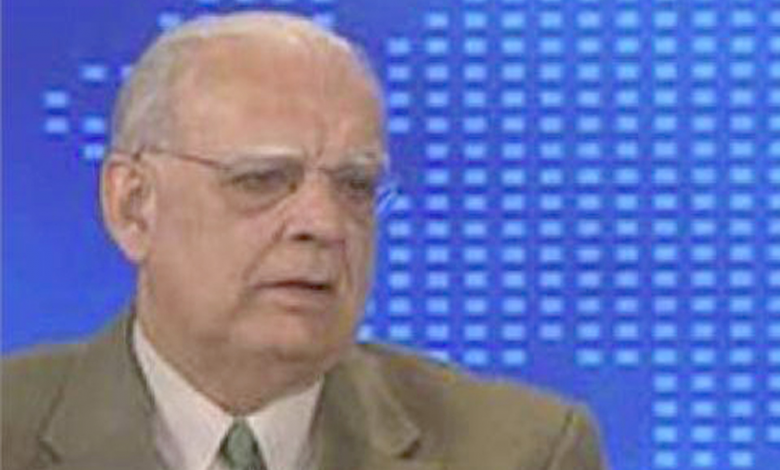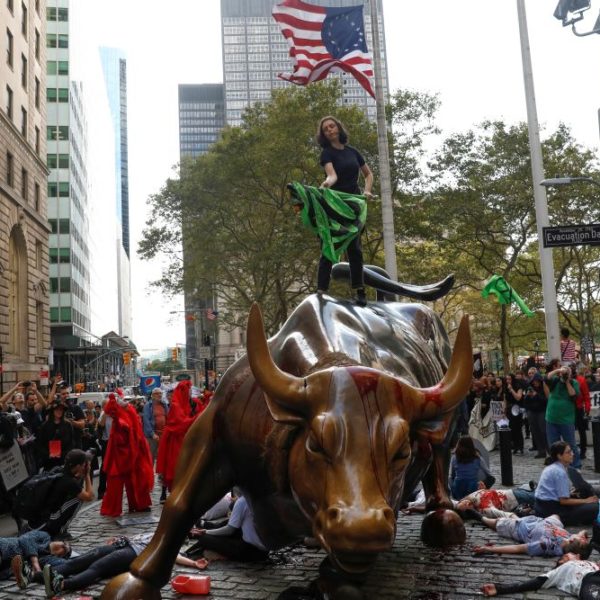September 16, 2020
By Godfree Roberts selected from his extensive weekly newsletter : Here Comes China
This week’s selection includes a separate explanation on just how the Chinese Communist Party and Government operates. For those that visit these weekly Sitreps to learn, this may put an end to the regular discussion items of just how bad the CCP is. You did know that China has six political parties, did you? The people that I’ve consulted say the following: China’s system works for China. We do not suggest you adopt our system, so, there is no reason for you to insist we adopt yours.
From a regular Twitter Feed by ShangaiPanda, here is how it actually works, by meritocracy. What this means is that Xi Jinping for example already had 40 years experience in governing, before he was both selected, and elected to his position.
From Godfree’s newsletter which is just brimming with interesting items this week, we’ve selected items about:
- space,
- Islam, communism and the BRI,
- trade war and trade deficit,
- and a highly educational piece by ‘Chairman Rabbit’, who analyses America from a Chinese perspective.
On studying China it is good to remember that unlike many other countries, China as a country holds together from two perspectives, a long lasting civilizational unity, as well as a sovereign state.
Space – high technology that is green technology
China has safely landed a reusable spacecraft which it claims will provide a “convenient and inexpensive” method of getting to and from space. The craft launched on September 4th and landed on September 6th after spending two days in orbit, according to the state-run Xinhua News Agency. Very little is known about the spacecraft, including even its basic design. There are no picture or renders of the craft, but there have been rumors it is a spaceplane similar to the Air Force’s X-37B. A Chinese military source told the South China Morning Post they could not provide details on the mission but that “maybe you can take a look at the US X-37B.”[MORE]
Islam, Communism and the BRI
The significance of having 52 Muslim countries (37.6%) that comprise 87.5 per cent of World Muslims in the BRI alliance, is not lost on the United States and its allies who are not particularly pro-Islam, which may explain their sudden interest to ‘care’ about the plight of Muslims in Xinjiang! Soon after the Bolshevik uprisings, Communism and Islam seemed destined to liberate the Muslim world from European Imperialism, but that was not to be due to their ideological differences. This presented an opportunity to the United States and its allies, where they coopted anti-Communist Jihadism to disrupt Communism. This had the unintended consequence of being the impetus for China’s Belt and Road Initiative, which presented the U.S. and its allies with new challenges.
Soon after the Bolshevik revolution of 1917, Communism and Islam were the impetus for revolutions against European imperialism in Egypt, Iraq, India, Caucasus and Central Asia, and the Indonesian Archipelago. However, divergent views about Communism proved divisive among Muslims (who are also quite divergent in their theological interpretations of Islam) and this quasi- ideological alliance was all over by the onset of the Cold War. Those irrevocable divisions may have been due to the essence of Islam’s socio-economic and political system. It is more consultative (‘Shoura’ or democratic theocracy) and entrepreneurial in nature, which is more compatible with social democracy and capitalism, than with communism’s autocratic state planned economy.
The other reason for such failure is the proactive role of the United States (and some Western Europeans, like Britain and France) in using Christian missionaries and NGOs in intelligence gathering while spreading Christianity in Africa, Asia, the Middle East and South America. In the 1970s, it was revealed that the CIA sponsored missionaries in Kerala and Nagaland to not only block the advance of Communism in India, but also to establish sufficient tensions between India and China and prevent any regional stability that continues to our present day.
In the 1980s, the CIA’s material support to the Afghan Mujahideen (and by default the Afghan Arabs, like Osama Bin Laden and his followers, who were rounded up from the different Arab and Muslim countries by their intelligence services and sent to Afghanistan, via Pakistan for their paramilitary training by the ISI, in the hope that they would never come back) only exacerbated extremist violence ever since. In the 1990s, the predominantly Muslim former Soviet Republics of Central Asia; Kazakhstan, Kyrgyzstan, Tajikistan, and other Islamic countries like Afghanistan and Pakistan opened their doors to Saudi-sponsored Wahhabi Islam (probably with the ‘blessings’ of the CIA).
This resulted in an upsurge of Islamist fundamentalism and separatist movements in central Asia, like al-Qaeda affiliated Turkestan Islamic Party(TIP), Hizb ut-Tahrir (HuT) and Harkat-ul-Jihad-al-Islami (HuJI), which have presented a challenge to China and others in the region. Since the rise of anti-Communist Jihadism in the 1980s and its coopetition by the Anglo-Americans to disrupting Communism ever since may have been the impetus for China’s Belt and Road Initiative (BRI).
The $8 trillion investment by China in its bold, innovative and strategic Belt and Road Initiative (BRI) alliances with 138 countries comprising 51.7% of world GDP offers an infrastructure backbone of maritime, land and digital trade alliances. The BRI alliances represent 4.8 billion people (61.7%) of the world population. Of which an estimated 1.4 billion (29.2%) identify as Muslim and are part of the 52 member countries of the Organisation of Islamic Countries (OIC), including all 22 Arab countries.
China’s BRI strategic alliances with Arabic and Muslim countries can only help neutralise the existential threat of global Islamist fundamentalism in the long-term by spreading economic prosperity and alleviating poverty. Also, it will not only bring prosperity and stability to China’s underdeveloped north-western part (Xinjiang holds 1.33% of China’s population and contributes 1.35% to China’s GDP), but also to (its ideological partner in the new world order) Russia, and other BRI partners on its western border.
Coupled with technological innovations in global cross-border trade and finance, the BRI projects would no doubt accelerate global economic growth and revive China’s historical legacy in boosting entrepreneurships without compromising necessary protections of the weak. Those infrastructure-driven alliances are building a global community with a shared future for mankind. This is so important at a time when our world is divided by poverty, crippling national debts and the rise of ultra-nationalism.
The clash of civilizations, anti-(Muslim)-refugees’ sentiment and Islamophobia are just symptoms of the rise in white supremacism and alt-right extremism sweeping the Anglo-American and European nations. Those groups subscribe to a conspiracy theory of cultural and population replacement or nativism, where white European populations are being replaced with non-Europeans (predominantly Muslim Arabs from Syria and elsewhere) due to the complicity of ‘replacist’ elites.
For example, the ‘Génération Identitaire’ (GI) movement in France, which considers itself a ‘defender’ of the European civilization has affiliated youth groups in Austria, Belgium, Czech Republic, Germany, Hungary, Ireland, Italy, Netherlands, Slovenia and the United Kingdom. This heightened sense of ultra-nationalism is driving Western democratic politics away from economic concerns, in favour of issues related to culture and identity. No doubt, Anglo-American and European anxieties about China’s technological, economic and geopolitical dominance may be rooted in their innate fears about being displaced by an Asian culture and the potential spread of Socialism with Chinese characteristics to the 138 countries that joined the BRI alliances, after having spent a good part of over 70 years fighting Communism.
America’s continued rise as a world power—from the 1890s through the Cold War—and its bid to extend its hegemony deep into the twenty-first century through a fusion of cyberwar, space warfare, trade pacts, and military alliances – is now limited by the reality that it has to dismantle China’s BRI alliances as it did to the USSR. This is why the ‘five eyes’ alliance is going on the offensive with (a) sanctions and visa restrictions for Chinese officials, (b) bans on China’s technological 5G innovations (Huawei, Tik Tok and WeChat under the guise of ‘National Security’ concerns), (c) tariffs trade wars, and (d) a particular focus on ‘human rights’ in Hong Kong and Xinjiang.
The significance of having 52 Muslim countries (37.6%) that comprise 87.5 per cent of World Muslims in the BRI alliance, is not lost on the United States and its allies who are not particularly pro-Islam, which may explain their sudden interest to ‘care’ about the plight of Muslims in Xinjiang! Thus, it is not unreasonable to conclude that the sole purpose of those disruptive policies by the “five-eyes” alliance is to intensify the global anti-China sentiment that is already aggravated due to COVID-19, and to inflame Muslim sentiment in particular, so as to torpedo China’s largest economic and geopolitical Belt and Road alliances.[MORE] [George Mickhail is an LSE trained academic and a geopolitical risk analyst with 30 years’ experience in major global accounting firms and business schools.]
Trade War and Trade Deficit
The US trade deficit with China widened in July – an embarrassing situation for President Trump, who Taiwan’s Liberty Times said had been left with a ‘green face’ (a crude expression that makes plain this is a bad outcome for him). When the US President campaigned four years ago, he strongly accused China of seizing American wealth in what he hailed as “the biggest theft in history.” After his election, he maintained this position against China. However, the latest data will hardly please him. The United States had a $31.6 billion trade deficit with China in July, which was an 11.5% increase from June. The paper noted that before the outbreak of the coronavirus, the US trade deficit with China was narrowing, but it has gradually expanded since the epidemic spread. Data released by the US Census Bureau on Thursday showed that the trade deficit with China in Q2 increased by 36.8% compared to Q1. The deficit in July was 4.36% larger than that in July 2016.[MORE]
‘Chairman Rabbit’ Analyzes America
Editor’s Note: Tu Zhuxi (Chairman Rabbit) is the nom de plume of Ren Yi, a Harvard-educated Chinese blogger who has amassed more than 1.6 million followers on Weibo who seek out his political commentary, much of which falls under a genre we might facetiously call “America-watching.”
Today, I scrolled through the interview Professor Ezra Feivel Vogel gave with the Global Times: “90 year-old Professor Vogel: Unfortunately, there is a possibility of armed confrontation between the United States and China.” The veteran professor—who has researched China and East Asia all his life and promoted the development of ties between the United States and China—conveyed intense unease after witnessing two years of sharp downturn in Sino-U.S. relations under the Trump Administration. He could not bear not to air his concerns.
This interview comes at an opportune time. As you can see, I have excerpted a short comment from the interview. This excerpt perfectly echoes the content I have wanted to expand on these last two days:
Vogel: There is a new article in the Atlantic magazine by James Fallows that gives the most comprehensive explanation of what has happened. And it clearly is the Trump administration.
Before the coronavirus, there had been plans in earlier administrations for dealing with an epidemic. We had a good overall plan. Trump did not use those plans at all. He even acted when he first heard about the coronavirus pandemic as if there was not a big problem. So things were delayed. It clearly is Trump’s responsibility.
At the time of writing, the United States has around 3.8 million confirmed cumulative cases, 140,000 deaths, and a daily increase of about 64 thousand cases. The diagnosis of experts and intellectuals around the United States: this is all due to the Trump Administration.
First of all, the United States’ so-called “good overall plan” for epidemic response was targeted towards a type of infectious disease that resembles the flu in infectiousness, hazard, and lethality. The United States after all has quite a few documentaries and special television programming about pandemics, and every year in every corner of the country drills are held about pandemics, but all of these were with the assumptions of a flu-like disease. COVID-19 was not within the expectations of an American plan for epidemic response, and indeed was beyond the response plan of every country in regard to an infectious disease with respiratory transmission. COVID-19 is an especially potent epidemic, a disease with an extraordinarily high death rate. The epidemic response plan that the United States currently had in place was entirely insufficient for COVID-19. Dr. Anthony Fauci brought up this topic several times in the last few months, especially in the early stages of the epidemic: the American system and design is either insufficient or entirely ineffectual against COVID-19. Dr. Fauci was speaking only from the standpoint of public hygiene and healthcare system and his analysis did not broaden past these considerations.
I have been following the news, media, and commentaries of the U.S. right and left. Criticisms of the epidemic response have generally been from Democratic Party, anti-Trump, and/or liberal-aligned intellectuals. Even after several months, I have rarely encountered essays or discussions that analyze in-depth the full extent of the difficulties facing the U.S. COVID-19 response by synthesizing broader observations on the nation’s political system, society, governance, culture, and economy.
Basically, all the analyses have taken the question and subsumed it under the issue of “political leadership”—usually pointing towards the President, the White House, and state governors. The majority of these analyses lay blame onto the very person of Trump.
Basically, all the analyses have taken the question and subsumed it under the issue of “political leadership”—usually pointing towards the President, the White House, and state governors. The majority of these analyses lay blame onto the very person of Trump.
According to this logic, the reason for the U.S.’s weak response to the epidemic is Trump and Trump alone. If only there was only another person in charge, the U.S. could have defeated COVID-19.
Readers who follow me should know my methods well: I have always begun my analyses from a sociological point of view. How could the U.S. use influenza as the primary lens to understand COVID-19, and how did this understanding influence the U.S.’s subsequent responsive actions? I have since wrote many essays on this topic, for example my April 1st, 2020 essay: “Can the United States Shut Down Entire Cities and Thoroughly Practice Social Distancing Like China? A Discussion of American Exceptionalism” (link in Chinese).
In that piece, I argue that due to the U.S. political and legal system, enacting a comprehensive and stringent social distancing program, including measures such as quarantining cities, is simply not possible.
In the next few months, I will continue my analysis and extend towards the political level. Not too long ago, I collected a few writings into this listicle: “13 Reasons for the Ineffectual Response towards COVID-19 of the United States and ‘Society Construction’ During an Epidemic” (link in Chinese).
I summarized thirteen reasons for the U.S.’s weak response to the epidemic:
- Government system: the separation of powers between the federal, state, and local governments
- Government system: the separation of powers between the legislative, executive, and judiciary bodies
- Wide racial and class disparities
- A culture that understands individualism as a cardinal virtue, even to the point of opposing social or collective interests
- An overwhelmingly one-sided emphasis on political and civil rights
- “Gun culture”: the spirit of Manifest Destiny, rugged individualism, and militarism
- “Bible culture” and anti-intellectualism
- A pluralistic society without common understanding or consensuses
- A government and media that intensifies rather than ameliorates social tensions
- A values system that does not respect the elderly and does not assign elders special protections
- Family structures which are not suited to fighting against COVID-19
- The precarious economic situation of the United States’ middle and lower classes (like walking on a tightrope, i.e. living from paycheck to paycheck or credit problems)
- Other cultural factors, such as resistance against wearing masks
There are certainly many more reasons than the ones I have listed. But what I wish to express is that the U.S.’s weak response to the epidemic is the combined result of political, legal, social, cultural, economic, and other factors. The White House, as one of the holders of broad public authority (the executive section of the federal government), has in fact significantly limited power over this broader structural context.
The U.S. cannot manage stringent social distancing, large-scale quarantines of cities, nor restrictions on interstate travel. Health QR codes on mobile devices are entirely impossible with citizens’ insistence on privacy protections. A vast society led primarily by individualism and anti-intellectualism can hardly speak of epidemic management. These factors are not problems that can be resolved with the changing of a president. I believe that even if it were Obama, Hillary, or Biden as president, they would not be able to reverse the tide of the battle against COVID-19, even if they would be slightly more effective—for instance if they had taken the initiative and emphasized the importance of masks. This is because fighting an epidemic does not depend on the lobbying or practices of a president, but rather on the public health and prevention system of an entire country, one which from top to bottom must act in unity and move together. Public authority must comprehensively, effectively, and consistently implement policies (such that each locality will not have its own variant policies), and also cannot allow any level of the judiciary to interfere in the problems of any level of government. On the balance between citizen and society, preparations must absolutely be made to cede rights to the collective. “Political and civil rights” must in these times yield way.
The very design of U.S. political and legal institutions is meant to inhibit collective rights. Balance of powers is at the core of American governance. Political and civil rights are the bedrock of American political values. To deny these values equates to the very denial of the U.S.’s fundamental being.
The very design of U.S. political and legal institutions is meant to inhibit collective rights.
Therefore, to take the U.S.’s weak response to the epidemic and shove it at “political leadership” and at the feet of Trump is not merely skin-deep, but avoids the real problem and focuses on easy answers. It is simply not looking at the substance of the situation.
For several months I have followed U.S. political commentaries on the left and right, and I can confirm I have not seen any analysis of depth. The overwhelming majority of analyses are overly narrow and concrete, pointing at an individual perhaps. Rare is the person who can leap outside the U.S. political structure and carry out a detailed assessment from a third point-of-view. Why? I summarize two reasons:
(1) Americans are sort of like the baffled participant in a game; sometimes the onlookers see more of the game than the players. Americans honestly believe that the American system is exceptional, the best in the world. This is an earnest and steadfast faith, an authentic “self-confidence in path, self-confidence in principles, self-confidence in system, self-confidence in culture” [the “Four Self-Confidences” of Xi Jinping Thought]. They simply cannot bring themselves to doubt or oppose the American system. Since the American system is perfect, once the epidemic creates problems, by the process of elimination, Americans reason that the problem must stem only from electing the right or wrong politician. From this line of thought, pick out the one who has the most power: this is Trump’s fault. After him, perhaps we blame the governor of Florida, DeSantis. This is about as deep as the majority of Americans introspect.
(2) Criticizing the American system is a serious political error. It’s taboo. This is because it is anti-American, “unpatriotic,” “un-American.” It is a stance that doubts the very foundations of the United States. So when there is an elephant in the room in regards to the American system, everybody can see it but dare not speak up. I believe that the majority of people do not even see this elephant in the room because they have been so thoroughly brainwashed by the perfection of the American system. It is only a minority of people who can see this. These people very well could be Democrats or liberal intellectuals. This small number of people aware of reality cannot point out the elephant, however, even if they can see it. This is because pointing it out cannot change the situation on the ground, yet will still result in censure and criticism. One would rather polish a cannonball and lob it at Trump.
In summary, if we compare China with the United States, we would discover an interesting phenomenon.
When Chinese people criticize, they are accustomed to focusing criticisms on the system. “Systemic problem.” “Systemic-ism .” Even though there are indeed problems at the individual level, these problems are thoroughly rooted in the larger system. “Because the system produced this type of person,” “because the system could not restrain or check this particular person.” At any rate, any analysis fundamentally leads back to systemic problems.
When American people criticize, it is focusing the problem onto the physical body of an individual politician. It is not the system at fault, because the system is already perfect or close to perfect, so it can only be a problem birthed from the politician: this pundit’s personality is bad, their abilities did not cut it. All criticisms are of this sort. With that, if an impotent pundit is continuously elected or re-elected—for instance if Trump is re-elected, then this is a problem of the voters. But at this time, the analysis simply cannot proceed further. In the calculus of American political values, the political values of every person are equal: one cannot belittle the voters. In 2016 during the presidential race, Hillary Clinton belittled Trump’s supporters and faced an overwhelmingly negative backlash, costing her the ultimate price (this could perhaps be why she lost the presidential race). What is left then is to criticize the political influence of the media, campaign funding, and interest groups. But even here the analysis must end. Within the proscribed limits of the dialogue, it is easy to enter into another level of analysis—for example, could it be that the U.S. electoral system has fundamental faults? If one gets to this level, it touches upon the very body of U.S. democracy and its electoral system. One would be entering a live mine zone, teetering on the edge of political error.
In this sort of environment, Americans naturally will avoid hard problems and search for easy answers. They will not explore systemic problems, but rather focus their entire attention on electoral solutions.
Under this existing electoral process, one can only, perhaps, push their preferred candidate onto the political stage and wish only for their own candidate to ascend to the office, so that in the next few years that candidate can advance their own political programs and thereby protect the interests of the candidate’s supporters. In this sort of environment, Americans naturally will avoid hard problems and search for easy answers. They will not explore systemic problems, but rather focus their entire attention on electoral solutions.
Therefore, American politics are entirely driven by the short-term. They will look at long-term problems as a certainty before avoiding them, exerting only in order to resolve short-term problems. Even though there are scholars and intellectuals who can produce long-term analyses of wide historical and societal scale, this sort of analysis remains locked in the library and Ivory Towers, away from the stain of political practice.
The American “Revolution”
In the week after the conclusion of the 2016 election in the United States, Democratic primary candidate Bernie Sanders published his book Our Revolution. As everybody knows, 2016 was the contest between Trump and Clinton. Yet Bernie Sanders was the more extreme, more left (called a “socialist”) candidate of the Democratic Party, who was ultimately knocked out by the mainstream Clinton in the primaries. But he retains many fans among the Democratic Party’s “progressive wing”, including many youth. In his book, he introduced his thoughts as well as his explanations and analyses on all sorts of issues of the day, including the wealth gap, race relations, environmental problems, healthcare problems, the problem of media and interest groups binding politics, gender pay disparity, and the problem of Wall Street and big corporations.
Sanders’ diagnosis of American problems intersects with Trump: it is only that while Sander’s target audience was quite broad (for example, minorities, vulnerable groups, and women), Trump’s was much more parochial. On similar problems, Trump would provide right-wing resolutions to his limited audience of voters, but Sanders provided left-wing resolutions to his broad audiences—because of this, he was smeared as a “socialist”. Of course, during Sander’s entire campaign, there remained an unspeakable doubt: that is, can a big-city Jewish American ‘elite’ from Brooklyn, New York actually win the votes to be elected as President of the United States? This same problem may apply to Michael Bloomberg. To date, it seems this question answers in the negative.
But I do not wish to talk about Sanders’ propositions or ethnicity, but rather his slogan: “Our Revolution”.
“Our Revolution” has now become a left-wing action organization with roots in the 2016 Bernie Sanders campaign, and it continues to organize movements within the Democratic Party and in other broader social contexts.
“Our Revolution” has three key actions: “Win on our issues,” “Transform the Democratic Party,” and “Elect progressives up and down the ballot.”
It is of note that Sanders is the most mainstream American politician to date to support the idea of a revolution. However, what I wish to point out to Chinese readers is that this concept of “revolution” is nothing more than propagating his own thoughts and policy proposals to a wider audience, in order to get his own people elected and achieve electoral success himself.
People more familiar with Chinese political discourse should know the difference between “revolution” and “reform.”
Revolution is overturning and starting over again: toppling the old system and the old order, and constructing a new system. Revolution is often violent, of great force, compelled, and refuses to abide by the present system. From the standpoint of Marxism, revolution is class struggle, a fiery worker’s movement. From the standpoint of Leninism, it is a violent movement. From the standpoint of Mao Zedong:
“A revolution is not a dinner party, or writing an essay, or painting a picture, or doing embroidery; it cannot be so refined, so leisurely and gentle, so temperate, kind, courteous, restrained and magnanimous. A revolution is an insurrection, an act of violence by which one class overthrows another.”
In the Chinese context, and indeed in the majority of cultural and social contexts, “revolution” is an intense action: revolution demands the overthrowing of the present system. Abiding by the present system, or moving within the current system and order, can only be reform.
But it is different in the United States. In the United States, challenging and overthrowing the system is taboo. It is simply impossible. This is because the American system is considered sacred, perfect. It is only particular individuals who have problems, only particular problems that cannot be handled well. The system itself has no problems. Therefore, all actions can only be carried out within the purview of what the system allows. The only path is by election—use a successful election to construct the starting point and foundations of societal change.
The American system is considered sacred, perfect. It is only particular individuals who have problems, only particular problems that cannot be handled well. The system itself has no problems.
Because of this, in the political rhetoric of Bernie Sanders, we see not a radical revolution or transformation, but a complete obedience to the American system. Due to the American people’s 100% approval and obedience to the system, any possibilities that people may have substantive critique or doubts vis-à-vis the system are cut off, and no action can be taken. The American system has completely limited their space for movement. Even “radicals” similarly can only raise high the banner of the American system, and can only work and influence society within designated limits: by pushing their own candidates in elections.
A few weeks ago, the police brutality case of George Floyd caused massive numbers of Americans to take to the streets and protest without ceasing.
Yet have we seen any protestor put out protest against the very structure of America’s political system, institutions, and government? Will there be any person who comes and burn the Constitution? Burn the American flag? Will there be any person who will put forth concrete plans of actions towards subversion?
There wasn’t any. The protestors could only protest a few “conditions.” Each path towards resolution is diverted back into elections.
The United States uses the separation of powers mechanism to spread the vast majority of social contradictions among the politicians of the various local jurisdictions. Through the possibility of election, in order to resolve these contradictions, the people complain while pointing at the politicians, not the institutions themselves. In the end, the people believe they hold the power and can influence politics through the vote, carrying on their lives under this sort of hope.
The most awe-inspiring politics indeed is this: one in which people believe they have the power and thus maintain steadfast hope in the future, while at the same time changing nothing about the current situation.
A few weeks ago, when riots erupted all around the United States, Secretary of State Pompeo could still proudly boast and simultaneously demean China: Wehave freedom of assembly, expression, and freedom to protest.
The American system has already developed to this point: simply give the people freedom of expression and freedom to protest so that they can feel themselves righteous and superior, after which they may do as they wish.
I have before written an essay “From ‘Moral Licensing’ and ‘black-clad warriors’ to the ‘Sick People of Hong Kong’” in which I explained the concept of moral licensing:
“People believe that if they had prior done something good, they can then possibly condone themselves (or even indulge themselves) when in the future they do something not as good (even actions that do not conform to one’s own or the public’s moral standards).”
The circumstances surrounding the system of the U.S. are such: if we allow people expression, allow them to freely scold the government, this grants the people “political and civil rights.” This itself grants the American system moral superiority; it is the ends not the means. Afterwards, the government need not do anything further: “half-heartedly listen yet decide to do nothing.” That there have been so many racial conflicts and riots in the past few decades demonstrates that this kind of “expression” does not bring any substantive political transformation. American society has not experienced any fundamental changes. The people who can bear it no more cannot help but take to the streets after many a hard years.
The U.S.’s electoral system is a systemic, national form of “moral licensing”:
First, it grants people the right to vote, grants people a few nominal political and civil rights, allowing the people to feel that they have power and agency and thereby perceive moral self-satisfaction.
Afterwards, the politicians and elites can recount the greatness and glory of the system, right and proper as it is. “We allow African Americans to go out on the streets! So our system is progressive.” “We had Obama as president, how can our society be discriminatory against African Americans?”
The first stage of American politics is taking “the right to express concerns” and equating it with “measures to resolve the problem.” I allowed you to express your opinion, so all is well.
The second stage of American politics is taking “the right to express concerns” and using it as legitimization for “tacit allowance of the bad.” I allowed you to express your opinion, and I even allowed a black president, so what are you babbling about?
As one can see, the separation of powers and electoral system in the United States has created a perfect “cognitive trap” — people believe that this system can endlessly empower individuals and provide limitless potential and possibilities, that it can change anything. This system is in fact like a black hole, taking all the potential and sucking it in and dispelling it — even if it means there will be no changes in reality.
This system is in fact like a black hole, taking all the potential and sucking it in and dispelling it — even if it means there will be no changes in reality.
I believe that there will not be an insurrection in the U.S. because there is no power in the U.S. that can overturn or transform the American system. The American system is too powerful, it can already change the meaning of words: turning “revolution” into reforms hemmed in by the limits of the electoral system. This is indeed an extraordinarily powerful system.
Only an enormous outside pressure can cause the United States to change.
China is just such a pressure currently placed on the United States. In the beginning, the pressure was indistinct, unclear, but now it grows more apparent as China continues its rise.
Why Can’t America Criticize Its Own System?
Apart from “empowering” people, giving them the fantastic illusion of grasping political power and being able to influence it, the American electoral system is also importantly related to the system’s construction of an American person’s identity.
As I have written two days prior in the essay “Why the United States Does Not Understand China — From the Original Intention of the Communist Party of China, to European Civilization, to American Politics”, the United States is an multi-national country, assimilating many people from different ethnicities, nationalities, cultures, and societies. To bind these people together, a country cannot rely on blood ties, shared ethnicity, or shared culture, but instead on shared political values—the approval of the Constitution of the United States, and the approval of the foundational political values of the United States.
Political values and the American system: these two formulate the “national identity” of the United States.
Disavowing the American system is tantamount to disavowing the American national identity, necessarily meaning being anti-American.
Every civilization must construct its own foundations for national identity.
The national identities of European countries lay upon race, blood, and land, and, after, language and culture. Denying one’s race, blood, land, and language is to go against one’s own national character, and is hardly acceptable.
China is also multi-national, its national identity based more on culture and language; one able to integrate into the Chinese nation is one who can be accepted. Land is secondary, and ethnicity and blood ties may also be factors. But in summary, the inclusiveness of the Chinese people is quite potent, with ethnicity, blood ties, and other such factors relatively weak considerations. From the point-of-view of Chinese people, disavowing Chinese culture, history, tradition, or the perception of China’s territory and borders, is what it takes to disavow or be disloyal to China.
From the standpoint of the United States, ethnicity, blood, land, language, culture, and history are not key factors; only political values are. To disavow the American system is to disavow the American “nation.”
From the standpoint of any nationality, for one to deny their own national character is very much unacceptable, no matter if it is Europe, China, or the United States. The distinction from Europe and China is that the American nationality is built on the foundation of a political system and values.
In what circumstances then does a society or a nationality go against and disavow their own nationality?
I am currently of the belief that it is only in a cross-ethnic or transnational international setting where one could find serious frustrations which could produce such a self-disavowal.
Only in facing an enormous failure can there possibly be a self-disavowal, even a “self-hatred”.
China’s concept of nationality is built on culture and civilization. In the past two hundred years or so, China has suffered foreign invasion and bullying, thoroughly fell behind and received thrashings, and as a result came to doubt much of its own system and culture. This type of self-doubt and self-disavowal has persisted onto the present day. Chinese people tend to search for their own “inherent weaknesses” among their traditional culture.
Once the Chinese economy grew, and subsequently once its global standing rose, people began to change, becoming self-confident, and more were able to see the good aspects of Chinese traditional culture and contemporary societal practices.
The U.S. is similar. The American concept of national character is its own system and political value. Nothing short of a severe frustration of the American system, perhaps by China comprehensively catching up to or surpassing the United States, perhaps even failing in a competition or struggle with China, would possibly wake up the Americans to their senses. The basis for the United States’ own “four self-confidences” is its absolute leading role in the world for the past close to a century. The U.S.’s strength made people believe that the American system must be superior, and based on this they came to believe that America’s national character must be superior. The U.S. vigilantly guards against and attacks any other country that could challenge its national might, because any challenge would undermine the supposed superiority of the U.S.’s national character.
The U.S. vigilantly guards against and attacks any other country that could challenge its national might, because any challenge would undermine the supposed superiority of the U.S.’s national character.
If China one day rises and is to enter conflict with the United States and comes to outdo the American system, then for certain it would deal a huge blow to the self-confidence of the American people.
Only in such a time may the American people perhaps engage in deeper introspections on their system and models, and thereby possibly search for and implement necessary reforms.
I believe that American politics and society have extraordinarily powerful inertia and cannot initiate any self-led, self-directed adjustments in the short-term, unless there is outside pressure.
China’s rise is by now inevitable and will come to pressure the U.S. more as time goes on. At a certain point, the U.S. will be forced to confront and rethink their own system, to seek more changes and reforms. This is precisely like the period at the end of the 70s and beginning of the 80s, in which the U.S. confronted the rise of Japan in industrial and commercial matters. Thus, the U.S. increasingly scrutinizing China is only a matter of time.
As China continues to grow stronger, its influence on international affairs will naturally grow larger as well. At the same time, the United States will experience a relative decline, its soft power and political influence around the world will face relative decline as well. China can indeed throw out or act as a challenge, check, or supplement (the terminology is not important) to the American model in the future, and proceed on a path distinct from that of the West.
The path China takes will also influence the course of human development in the future, and indeed may be a course we will get to see in our lifetimes.
Finally, if there is a lesson that China must draw from the U.S. concerning principles of political systems, it must be that we must constantly remember to remain humble. Under no circumstances can we allow ourselves to become complacent and lose our vigilance. We must constantly look at our shortcomings, search for reforms and improvements, and consistently upgrade ourselves. “Four self-confidences” of course is vitally important, but we must at the same time retain our characteristically Chinese low-key, pragmatic, cautious, modest, and moderate dispositions.
We must never emulate the Americans in their blindness, arrogance and self-importance, lack of introspection, or their coarse self-confidence.[MORE]
Translated by Sean Haoqin Kang. The original Wechat blogpost, “American ‘Revolution’: The ‘Systemic Trap’ and the Lessons China Must Draw” can be found here (link in Chinese).
Selections by Amarynth
Filed under: Al Qaeda, China, Corona virus, Islam, USA | Tagged: Bolshevik revolution, brl, China-US Relations, Chinese Communist Party, CIA, Communism, Donald Trump, Hizb ut-Tahrir, Islamophobia, Sanders, Trade War, Turkestan Islamic Party | 1 Comment »





































